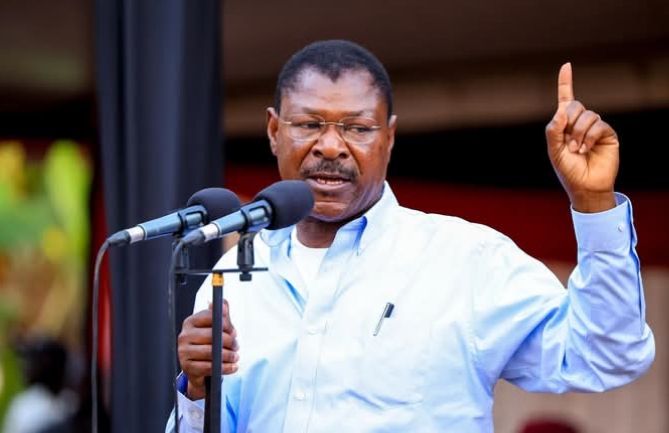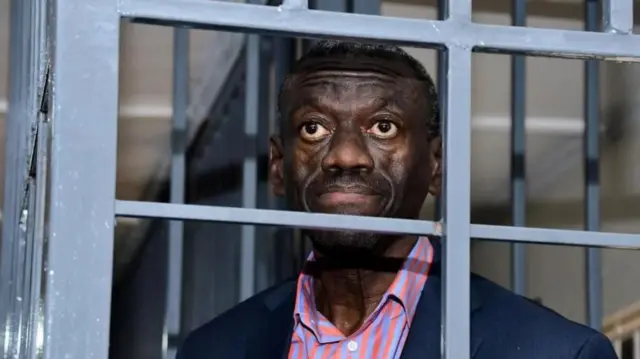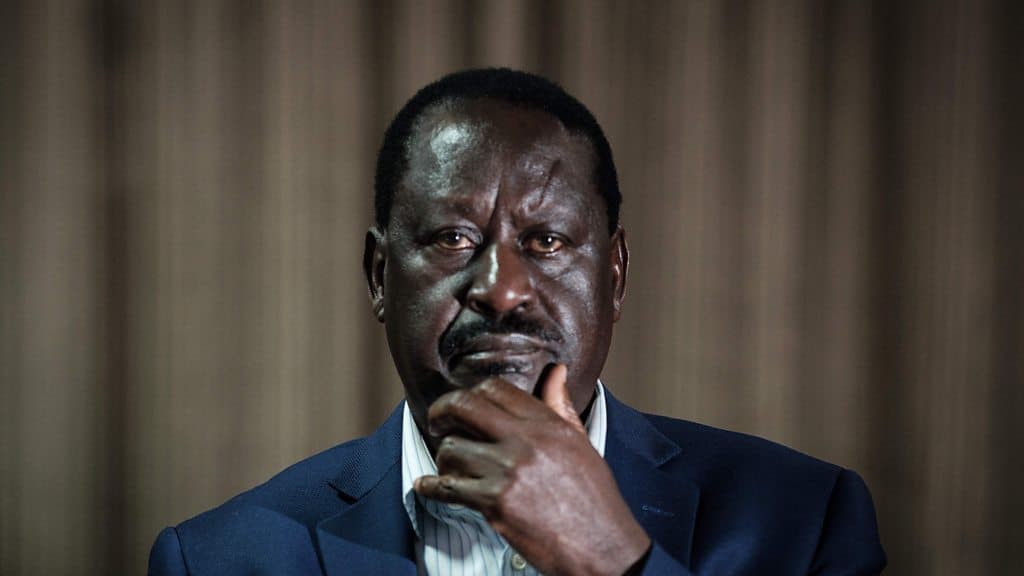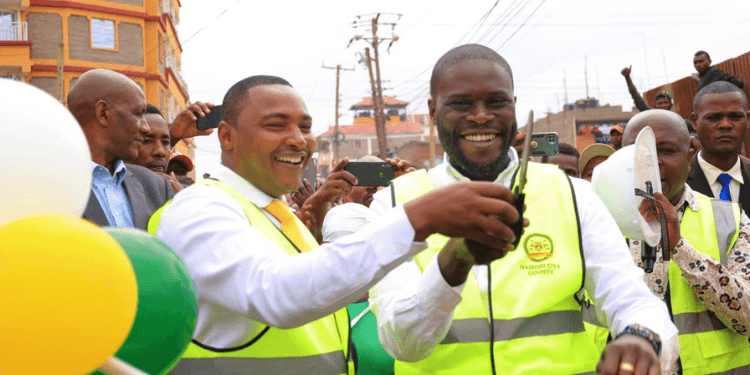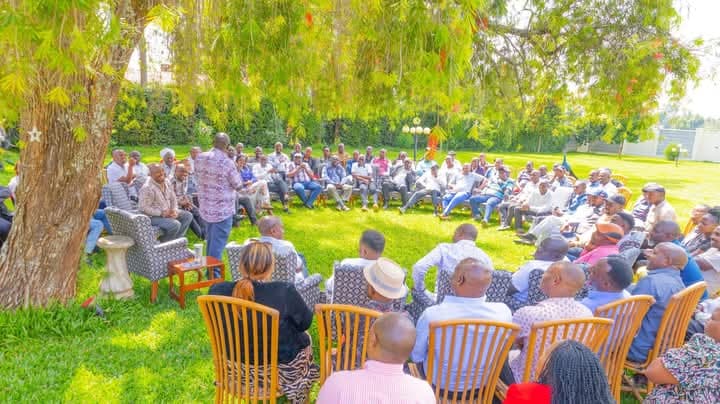National Assembly speaker and Ford-Kenya Party Leader Moses Wetangula is the latest candidate to declare interest in the Presidency, as the race to succeed President Ruto at the house on the hill garners momentum.
The Ford party leader, claims he is the best suited leader from Western Kenya to succeed the President. According to him, being the third in command in the Kenya kwanza administration puts him in a better chance to inherit President Ruto.
Speaking in Kikwameti village, Trans Nzoia county, Wetangula stated that he had been endorsed by political heavyweights from the Luhya community to chase for the top seat, a position he is taking into consideration.
"I am the senior most leader from Western region, and the position I hold in the government as the third in command puts me in a better chance to succeed President Ruto," Wetangula declared.
To advance his presidential ambitions, wetangula claimed he had initiated strategies including ensuring that all students in the region who have attained the age 18 acquire national identity cards and subsequentlyregister as voters.
"I have talked to principals in the region to ensure students eligible for national IDs are facilitated to acquire them," he said.
Wetangula told off those dismissing his quest for presidency, terming them enemy of the Luhya nation.
"I am not interested in the governor's seat. It is a small position. My level now is senior, and I am eyeing the presidency. So stop fighting me," he said.
Wetangula rooted for unity of the Western region, arguing it was a solution to both economic and political problems facing the region.
He lashed out at leaders opposed to President William Ruto’s decision to remove some of the requirements on Kenyans seeking to acquire the national identification cards.
"Why should a Kenyan be denied the right to acquire ID. It is dishonest for leaders to oppose the move by the president to remove some restrictions that have been frustrating Kenyan youths from securing the document," he added.
The Speaker, exuded confidence in President William Ruto's ability to win a second term come 2027 and later set the stage for him to ascend to the country's top seat.
He noted that the Kenya-kwanza administration is committed to fulfilling the promises it made to the Citizenry and will not rest until it lowers the cost of living, provide employment opportunities for the youth and ensure affordable housing and universal health coverage for all.
The Speaker reiterated his recent remarks that the Kenya Kwanza administration will ensure fairness in the distribution of national resources across all parts of the country.
Mr. Wetangula said the President William Ruto-led administration is keen on instituting equity and equality in service provision.
He said no part of Kenya will be discriminated against because of how they voted and this includes equal access to resources, opportunities and government services.
“The Ruto administration is instituting fairness, equity, equality in distribution of national resources to make sure every community, every county and every place is treated equally and has equal opportunity to get access to government opportunities and resources. The government is ensuring that as we share national resources across all the 47 counties, the 290 constituencies, 1,450 wards because all Kenyans deserve equal treatment for we all belong here,” Wetangula said.
The Speaker explained that despite there being political competition during elections, whoever is elected serves all despite political affiliations.
Meanwhile, preparations for Kenya’s general elections are slowly garnering momentum. The Independent Electoral and Boundaries Commission (IEBC) has been allocated an additional Sh5.78 billion for recurrent expenditure in the 2025/2026 financial year, as part of a budgetary allocation aimed at preparing for the upcoming 2027 general elections.
This allocation, which was unveiled as part of the new government budget set to begin on July 1, 2025, will see the IEBC's total recurrent expenditure rise to Sh9.63 billion, up from Sh3.85 billion in the current year.
The additional funds are expected to help the commission address critical election preparation needs, which include voter registration, electoral operations, and the long-delayed delimitation of electoral boundaries.
In a breakdown of the allocation, Sh3.35 billion has been earmarked for general administration and support services. Another Sh3.3 billion will go towards voter registration and electoral operations.
A significant portion of the budget, Sh2.35 billion, has been allocated to the Electoral Information and Communication Technology (ICT) sector, reflecting a notable increase from the Sh425.5 million allocated for the same purpose in the previous year.
Voter education and partnerships will also see a boost, with an allocation of Sh538.7 million, compared to just Sh36 million in the current financial year.
The budget also includes Sh46.5 million for the long-awaited delimitation of electoral boundaries, a process that has been overdue since March 2024. However, this figure is expected to rise further in the subsequent financial years.
The boundary delimitation is a critical constitutional requirement. According to Article 89(2) of the Constitution, the IEBC is required to review constituency boundaries at intervals of not less than eight years and not more than 12 years.
The last review was carried out in March 2012, making the need for an updated review urgent.
The increased allocation comes after a period of leadership instability at the IEBC, following the departure of several commissioners, including former chairman Wafula Chebukati. The commission has been functioning without a full complement of commissioners since January 2023, when the terms of Chebukati and his colleagues expired.
In the wake of this leadership vacuum, a recruitment process led by a panel chaired by Nelson Makanda is set to bring new commissioners on board, with hopes that they will swiftly assume their roles if confirmed by the National Assembly.
Looking ahead, the government plans to further increase the IEBC’s budget in preparation for the 2027 elections. The commission’s recurrent expenditure is expected to rise to Sh19.5 billion in the 2026/2027 fiscal year, followed by another increase to Sh34.9 billion in 2027/2028.
